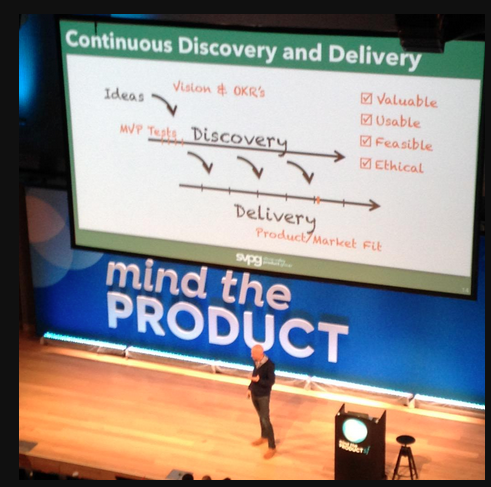OKRs: Working with Purpose

Objectives and Key Results align product organizations with customer and business goals, empower product managers to say no, and make plans visible to the entire organization.
In The Plex: How Google Thinks, Works, and Shapes Our Lives by Steven Levy
Objectives and Key Results OKRs were brought to Google by John Doerr as a way to align the organzation’s activities, introduce discipline and prioritization, and institute highly visible tracking and communication across the company. This method of setting goals derived from Andy Grove’s Management by Objective (MBO) approach at Intel.
At Google, objectives are set and reviewed by the entire company on a quarterly basis. Managers and their teams negotiate objectives and key results that can be measured. OKRs are rated from 0 to 1 with a goal of .6 to .7 representing success. Greater than 1 means that you did not set your sights high enough. Lower than .5 means you did not achieve the goal, or only partially achieved it. Everyone’s OKRs are available on an internal website. OKRs are not the same as, nor a substitute for, annual performance reviews. Some OKRs may be relevant to an individual performance review, but they are intended to focus the entire organization on clear priorities, giving everyone a reference point for deciding how to spend their time.

During his “Product Fail” talk at the June 2015 San Francisco Mind the Product Conference, Marty Cagan from Silicon Valley Product Group included OKRs as a key component of his Continuous Discovery and Delivery framework. For Cagan, OKRs are paired with vision to set the context for the ideas that flow into an ongoing discovery and delivery process.
In the video below, Rick Klau from Google Ventures gives an in-depth explanation of how OKRs are implemented at Google.
Klau tracked down the Power Point presentation that John Doerr gave to Marissa Mayer, Sergey Brin, and Larry Page in 1999. Of course, Doerr had an objective and key results for the meeting itself and gave as an example a football franchise with OKRs for each role in the organization.
Doerr’s deck identifies the benefits of OKRs as:
- Disciplined thinking — the main goals will surface;
- Communicates accurately — lets everyone know what is important;
- Establishes indicators for measuring progress — shows how far along we are; and
- Focuses effort – keeps organizations in step with each other.
The OKR process emphasizes negotiation and Klau says that one in place, the goal is to have a majority of OKRs come from the bottom up to meet company OKRs which have been established by the executive team.
Overall criteria for good OKRs to keep in mind are:
- Maximum 5 objectives with 4 key results
- Everyone must mutually agree to the OKRs
- Shoot for one page; two max
- Continue incomplete key results only if they are still important. This recognizes that things will change in the course of a quarter.
Klau emphasizes that OKR grades are meant as directional feedback, not absolute fixed values: “scores matter less than the process.” It’s important to facilitate the OKR’s owner to discuss what was learned and why the grade is what it is.
Klau gives three examples of OKRs from his days as product manager for Blogger. This is great insight into how real OKRs look and the range of activities that would be appropriate for a product manager to include. The third key result under the first objective is revealing: launch 3 revenue-specific experiments to lear what drives revenue growth.
Objective: Accelerate Blogger Revenue Growth
Key Results:
- Launch “Monetize” tab to all users
- Implement AdSense Host Channel Placement Targeting to increase RPMs by xx%
- Launch 3 revenue-specific experiments to learn what drives revenue growth
Objective: Grow Blogger traffic by xx% over organic growth
Key Results:
- Launch 3 features that will have a measurable impact on Blogger traffic
- Improve Blogger’s 404 handling, extend time on site and pageviews per sessionon sessions that start with a 404 error by xx%
Objective: Improve Blogger’s Reputation
Key Results:
- Re-establish Blogger’s leadership by speaking at 3 industry events
- Coordinate Blogger’s 10th birthday PR efforts
- ID and personally reach out to top xx Blogger users
There’s a great post on OKRs over at the UserVoice blog which gives insights from several tech companies using this approach: Zynga, 7Geese, Xactly, Swipely, and RankTab. Blog author Heather McCloskey notes that OKRs are not pass/fail and encourage teams to learn from mistakes and failures. The key is to review the OKRs on a regular basis rather than waiting until the end of the review period to dust them off. OKRs aren’t a management silver bullet, but they are a great way to provide clarity, transparency, and solid grounding for decisions.






